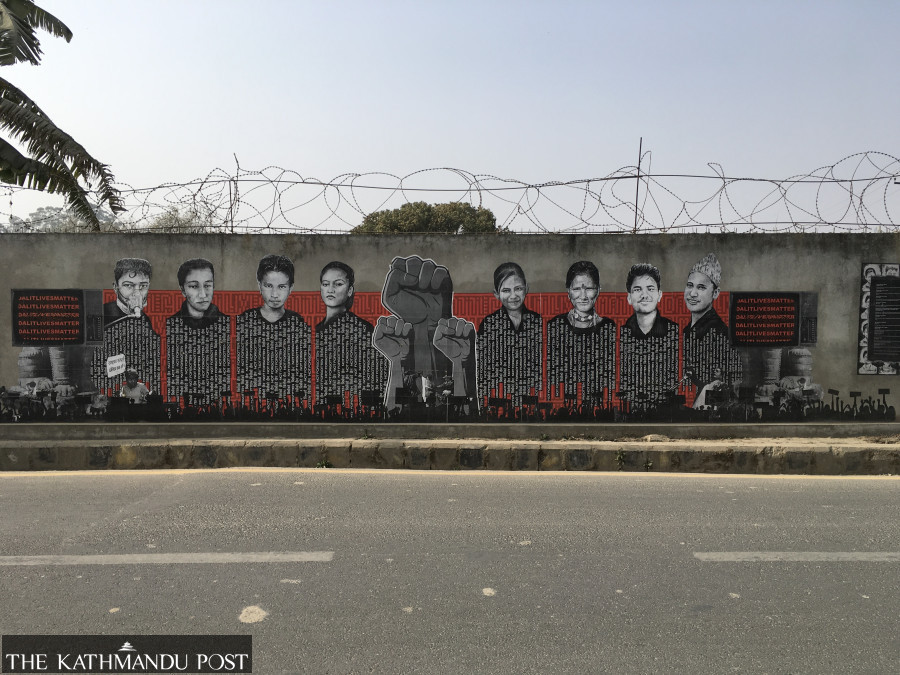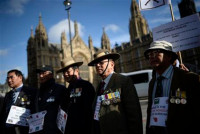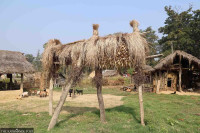National
Dalit representatives complain of social discrimination
Ensuring Dalit rights as fundamental rights is not enough unless they get implemented, Dalit leaders say
Binod Ghimire
Kalawati Bhand was elected the vice-chairperson of Ajayameru Rural Municipality in Dadeldhura district in the local elections of 2017. Coming from the Dalit community, it wasn’t easy for her to secure the ticket and contest the polls. Four years later, the situation hasn’t changed much.
“Still, many people are unable to accept that I am the deputy chief of the local unit,” she told the Post. “Even the government employees don’t take me seriously. They don’t say it to my face but their body language clearly shows their discomfort when they interact with me. This is because I am a Dalit.”
Unlike the previous elections, Dalit representation increased in the 2017 polls, mainly in local governments.
The Constitution of Nepal, promulgated by people’s representatives after a popular uprising, increased the representation of the Dalit community in government, but the social and caste-based discrimination the community faced over the centuries continues.
Not just the ordinary members of the Dalit community, even people’s representatives are facing discrimination.
Most of the 100 Dalit representatives of the people in the three tiers of government, who have gathered in Kathmandu to share their four years of experience, have said that the discriminatory attitude towards the community still remains deeply rooted in society and this is affecting their performance. “Still a large section of society thinks Dalits are incapable,” Ganga Paswan, mayor of Karjanaha Municipality, Siraha, and one of the participants in the two-day conference, told the Post. “I have answered them with my work over the years but there is a lot to be done to end this discriminatory attitude.”
Samata Foundation, a non-governmental organisation advocating for the rights of marginalised communities, organised the conference, which began on Sunday, to discuss the role of people’s representatives to ensure Dalit rights. The participants said though there is constitutional safeguard against untouchability and discrimination, it hasn’t been implemented effectively.
Article 24 of the constitution says no person shall be subjected to any form of untouchability or discrimination in any private and public places on grounds of his or her origin, caste, tribe, community and profession. “However, we are denied important roles in local governments for being Dalit,” said Nita Ghatani, a ward member from Birtamod Municipality, Jhapa. “The people’s representatives from the so-called higher caste too practice such discrimination.”
The representatives participating in the conference said that ensuring Dalit rights as fundamental rights in the constitution is not enough unless they get implemented.
Pradip Pariyar, executive chairperson of the foundation, said along with strict implementation of Article 24, the participants have raised a voice for the implementation of Article 40 of the constitution as per its spirit.
The Article states that Dalits have the right to participate in all bodies of the state on the basis of the principle of proportional inclusion. It also says that special provisions will be made by law for the empowerment, representation and participation of the Dalit community in public services as well as other sectors of employment.
“As the constitution doesn’t specifically say the representation shall be in proportion to the population, there is huge under-representation of Dalits except for ward members,” said Pariyar. “There was a strong demand from the participants to revise the Article specifying the share of the community in state organs and government mechanisms.”
In the 275-strong House of Representatives only 19 members are from the Dalit community while seven among 59 members of the National Assembly are from the community. Dalits have only seven percent representation in provincial assemblies. Similarly, out of 293 mayoral positions across the country, only six are held by Dalits. Only one among 460 rural municipalities is led by Dalit and the number of Dalit vice-chairpersons is just 16.
Similarly, hardly 197 among 6,743 ward chairs are Dalits.
“There must be seats reserved for Dalits in all tiers of government where candidates only from the community compete,” said advocate Prakash Nepali. “This is the only way to increase the representation of the community in proportion to its population.”




 16.89°C Kathmandu
16.89°C Kathmandu















